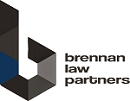Defamation and school publications: What you need to know to stay protected
We have previously explored the area of defamation where we looked at situations where the school principal’s reputation has been compromised. (To review that brief click here). But are there circumstances where a school could be liable for defaming another person?
We’ve discussed below a few points that should be considered when information is published by a school.
Who is a publisher?
Defamation is a very complex area of law that is constantly evolving. As you may be already aware, in order to be liable of defamation, one must be found to be the publisher of the defamatory material.
On first instance, it would seem the publisher is limited to the person who first wrote the offending material. This, however is not the current situation in Australia. A publisher may, in some circumstances, extend much further and include anyone who forwards the material, condones the material or moderates or allows publication of the offending material.
How does this affect my school?
We know many schools have Facebook pages, private or public, that enable school news and information to be shared. On these pages, parents, students, staff and other members of the community may be able to contribute material or comment on posts published by the school. Where this is the care, the school is considered to be a moderator of the page because they (should) have control of whether a comment is allowed to stay posted.
In recent decision of Voller v Nationwide News Pty Ltd; Voller v Fairfax Media Publications Pty Ltd; Voller v Australia News Channel Pty Ltd [2019] NSWSC 766, the Supreme Court has determined that three media companies (Fairfax; Australian News Channel [publishers of Sky]; and Nationwide News) are, for defamation purposes, the publisher of third-party comments on their public Facebook page. As such the media companies could be liable for the defamatory comments made on news stories on their Facebook pages, even if those comments are made by persons who are not at all connected to the media organisation. What was particularly important in determining that the media organisations were ‘publishers’ in this case was the fact that the media outlets had access to resources that would automatically hide posts until they were approved, unlike many other organisations.
Of course, this is somewhat of a unique case and arguably based on the circumstances of the Defendant companies, but it still serves as a warning to organisations hosting social media pages.
What should you do?
Whether or not this type of responsibility would fall on all Facebook page moderators is yet to be determined and may be subject to change. It is advisable, however, that you closely monitor any social media pages or other forums you have control over. If there are hurtful, rude or make untrue allegations (be it totally, partially or innuendo) it is prudent to immediately remove any comments or related thread.
What about freedom of speech?
Of course, the laws of defamation are constantly weighed up against the notion of ‘freedom of speech’. Be aware, however, that freedom of speech is not a constitutionally protected right in Australia (unlike the USA) so whilst it is important, it does not mean you can say anything you choose. A safe defence is if there is absolute truth behind any allegation.
Our advice, however, would not to tolerate any negative comments on any of your platforms both to protect yourself and others from possible defamation suits and to continue to foster a positive learning experience at your school.
How can we assist?
If you have any concerns about defamation it is important to seek legal advice as soon as possible. Defamation is something that needs to be handled correctly from the start including keeping proper records of offending behaviour and devising appropriate strategies. It is also restricted by a short time limit and so any action must be moved upon quickly. If you have a potential issue, have a question or want to discuss your policies for managing social platforms, we encourage you to talk to us.
This is meant as a guide only and should not be taken as legal advice.







